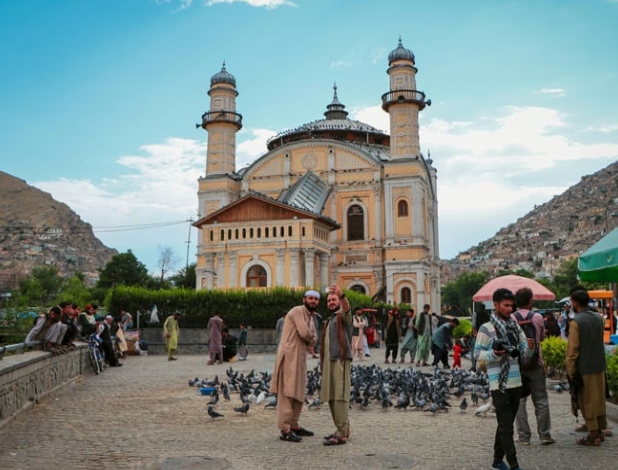Afghanistan Travel Guide
1. Introduction to Afghanistan
- Overview:
geography, ethnic groups (Pashtun, Tajik, Hazara, Uzbek), languages
- Why
Visit Afghanistan? (rich history, Silk Road heritage, stunning landscapes)
- Current
Travel Advisory & Security Warnings
- Entry
Requirements & Visas
- Transportation Overview (limited internal flights, road travel, local taxis)
2. Travel Types
A. Solo Travel
- High-risk
due to current political climate
- Recommended
only for experienced travelers with local contacts
- Essential
to travel with a guide and obtain local support
B. Group Travel
- Often
organized through NGOs or cultural heritage tours (if permitted)
- Group
travel strongly advised over solo exploration
- Security
escorts and local fixers are a must
C. Student Travel
- Limited
to academic research under institutional or governmental support
- Access
generally restricted to secure areas (e.g., Kabul universities)
- Remote
study or digital cultural immersion recommended
D. Business Travel
- Restricted
to diplomatic, NGO, or essential service operations
- Local
partnerships are essential
- Thorough
risk assessment and on-ground security planning required
3. Afghan Culture
- Deeply
rooted in tribal traditions and Islamic customs
- Strong
emphasis on hospitality, honor, and family
- Traditional
gender roles and dress codes
- Poetry,
music (despite restrictions), and oral storytelling traditions
4. Food and Drink
- Traditional
dishes: Kabuli pulao, mantu (dumplings), kebabs, naan
- Green
tea is a staple; alcohol is restricted
- Hospitality
rituals: sharing meals on the floor, tea before meals
- Food
hygiene varies—caution with street food and water
5. Shopping in Afghanistan
- What
to buy: carpets, lapis lazuli jewelry, antique coins, miniature paintings
- Best
shopping cities: Kabul, Herat (if accessible)
- Support
local artisans via reputable organizations or cooperatives
- Expect
cash transactions; haggling is common
6. Lifestyle in Afghanistan
- Daily
life influenced by religious traditions and local customs
- Men
and women’s roles are distinct and regionally variable
- Slower
pace of life, especially in rural areas
- Friday
is the holy day (weekend)
7. Language in Afghanistan
- Official
languages: Dari and Pashto
- Basic
greetings and formal expressions are appreciated
- English
is limited outside of cities and NGO circles
- Learning
a few local words shows deep respect
8. Best Time to Visit Afghanistan
- Spring
(March–May): best
for mountain views, blooming valleys
- Autumn
(September–October): dry, cool, ideal for travel
- Summer: hot and dusty, especially
in the south
- Winter: snow in the mountains;
limited accessibility
9. Best Things to Do
- Visit
historic cities (Kabul, Herat, Bamiyan—if safe)
- Explore
ancient Buddhist sites (Bamiyan Valley, remains of Buddhas)
- Trekking
in the Wakhan Corridor (requires special permits and security)
- Visit
cultural sites: mosques, shrines, bazaars
- Learn
traditional crafts from local artisans
10. Top Attractions
- Kabul: National Museum, Gardens
of Babur, Chicken Street
- Herat: Friday Mosque, Herat
Citadel, bustling bazaars
- Bamiyan: Bamiyan Valley, Shahr-e
Gholghola, Band-e Amir Lakes
- Mazar-i-Sharif: Blue Mosque (Shrine of
Hazrat Ali)
- Wakhan
Corridor: Remote,
stunning natural beauty (special access only)
11. Suggested Itinerary (Hypothetical — Only
where permitted and safe)
7-Day Culturally Focused Itinerary (Security Dependent)
Day 1–2: Kabul – National Museum, local markets
Day 3–4: Fly to Herat – mosque, citadel, artisan workshops
Day 5–6: Travel to Bamiyan (if accessible) – cultural site visits
Day 7: Return to Kabul, shopping, cultural discussions
Note: All travel should be guided, pre-approved, and secured.
12. Best Places for Vacation
- Historic
& cultural: Bamiyan,
Herat, Kabul (if stable)
- Natural
beauty: Band-e
Amir, Wakhan Corridor
- Spiritual
sites: Blue
Mosque in Mazar-i-Sharif
- Adventurous
journeys: Wakhan,
Hindu Kush, Nuristan (only with full clearance)
13. Recommended Afghanistan Travel Guide Books
- Lonely
Planet: Central Asia (includes limited info on Afghanistan)
- Bradt
Guide to Afghanistan (very detailed and historical)
- Afghanistan:
A Cultural and Political History – Thomas Barfield
- An
Unexpected Light: Travels in Afghanistan – Jason Elliot
14. Travel Essentials
- Conservative
clothing (especially for women: headscarf, loose garments)
- Satellite
phone or secure communication tools
- Local
fixer/guide, ideally with dual language fluency
- Travel
insurance covering high-risk zones
- Hard
cash (USD preferred); cards rarely accepted
- Photocopies
of all documents and contingency plan
15. Survival Travel Phrases (Dari & Pashto)
- Hello – Salaam
- Thank
you –
Tashakur (Dari), Manana (Pashto)
- Yes
/ No –
Bale / Na
- Please – Lotfan
- Excuse
me / Sorry –
Bebakhshid
- Do
you speak English? – Aya shoma Englisi gap mezaned?
- How
much is this? –
In chand ast?
- Where
is the bathroom? –
Tuvalet kujast?
- I
need help. –
Man komak mekhaham
- Goodbye – Khodahafez








0 Comments